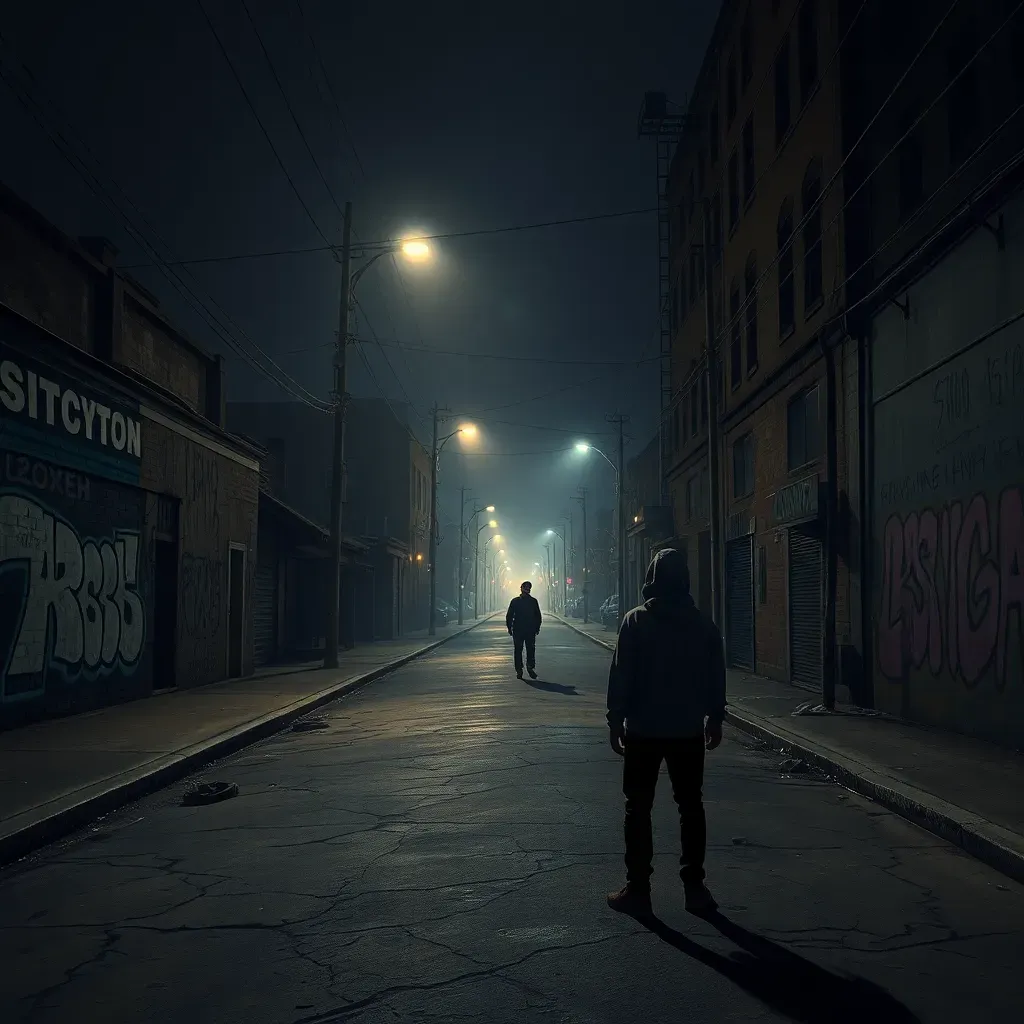Is Stockton dangerous? The shocking truth about its crime stats
- How Dangerous Is Stockton Compared to Other US Cities?
- What Types of Crime Are Most Common in Stockton?
- Which Neighborhoods in Stockton Are Safe, and Which Are Sketchy?
- What’s the Stockton Police Department Doing About Crime?
- How Do Stockton’s Crime Trends Compare Over Time?
- What Do Real People Say About Living in Stockton?
- How Does Stockton’s Danger Level Affect Daily Life and Decisions?
- Comparing Stockton to Other Risky Towns in the US: What Makes It Unique?
- What Are the Biggest Misconceptions About Stockton’s Safety?
- How Can Stockton Residents and Visitors Stay Safe?
- The Truth About Stockton’s Danger Level in a Nutshell
- Sources and Further Reading
How Dangerous Is Stockton Compared to Other US Cities?
Stockton’s reputation as a sketchy city isn’t just hearsay—its crime rates tell a story that’s hard to ignore. When you look at the numbers, Stockton’s overall crime is about 82% higher than the national average. That’s a big deal, especially when compared to other California cities.
Violent crime, including assaults, robberies, and homicides, is a major factor. In 2023, Stockton reported over 4,000 violent crimes, with a homicide rate that’s significantly above the national average. Property crimes like burglaries and car break-ins also contribute to the city’s danger level.
| City | Crime Rate per 100,000 | Violent Crime Rate | Homicide Rate |
|---|---|---|---|
| Stockton, CA | 4,259 | 1,200 | 17 per 100,000 |
| Detroit, MI | 3,800 | 1,100 | 40 per 100,000 |
| St. Louis, MO | 4,500 | 1,500 | 60 per 100,000 |
| Los Angeles, CA | 2,500 | 600 | 7 per 100,000 |
What does “dangerous” really mean? It’s about the chance of becoming a victim of violent crime or property crime. Stockton’s numbers place it among the more risky towns in US, but it’s important to remember that crime is often concentrated in specific areas, not citywide.

What Types of Crime Are Most Common in Stockton?
Violent crimes in Stockton include murders, assaults, and robberies. In 2023, the city saw 56 murders, a figure that weighs heavily on its danger level. Assaults and robberies are frequent, often occurring in certain neighborhoods after dark.
Property crimes are also a concern. Burglaries, thefts, and car break-ins happen regularly, especially in areas with less street lighting or police presence. Locals often warn about trouble spots where these incidents spike.
Gang activity plays a role in Stockton’s crime landscape. Several neighborhoods experience higher gang-related violence, which impacts overall safety. Drug-related crimes also contribute, with law enforcement tracking patterns to target hotspots.
The Stockton Police Department keeps detailed crime reports and uses data to monitor trends. They encourage residents to report incidents promptly to improve response times and community safety.
Which Neighborhoods in Stockton Are Safe, and Which Are Sketchy?
Not all of Stockton is the same when it comes to safety. Some neighborhoods are known for their strong community ties and active crime prevention programs, while others have earned reputations as rough or dicey areas.
- Safer neighborhoods Areas like Lincoln Center and Stone Creek Center have lower crime rates and community watch groups. Residents here often mention feeling comfortable walking around even after dark.
- Riskier neighborhoods Parts of the southwest and certain central districts have higher reports of violent and property crimes. Locals advise avoiding poorly lit streets and staying alert, especially at night.
Stories from residents on forums like Reddit highlight these contrasts. One user noted, “I live near Trinity Parkway, and it’s pretty chill most days, but some blocks get shady after sunset.” Another shared, “March Lane is okay, but I avoid certain streets after dark because of past incidents.”
Tips for spotting trouble spots include watching for poor lighting, lack of foot traffic, and fewer police patrols. Staying in well-populated areas and joining neighborhood watch programs can boost safety.
What’s the Stockton Police Department Doing About Crime?
The Stockton Police Department (SPD) actively works to reduce crime through several strategies:
- Community policing Officers engage with neighborhoods to build trust and gather intel on local issues.
- Neighborhood watch programs These initiatives empower residents to keep an eye out and report suspicious activity.
- Technology use SPD uses data analytics and surveillance to identify crime patterns and deploy resources efficiently.
Success stories include reductions in certain crime categories after targeted patrols. However, challenges remain, especially in areas with entrenched gang activity.
Residents are encouraged to participate in safety meetings and communicate openly with police. This partnership is key to improving urban safety in Stockton.
How Do Stockton’s Crime Trends Compare Over Time?
Looking back over the last decade, Stockton’s crime rates have fluctuated. After a peak in the early 2010s, some violent crimes dipped due to focused police efforts and community programs.
However, recent years have seen a slight uptick, influenced by economic shifts and social stresses, including the pandemic’s impact. Property crimes have remained relatively steady but still above national averages.
Forecasts suggest that without continued investment in prevention and social support, risk levels could rise. But ongoing community engagement offers hope for safer streets ahead.
Crime Rates Comparison: Stockton vs Other US Cities (per 100,000 people)
Stockton, CA
4,259
1,200
17 per 100,000
Detroit, MI
3,800
1,100
40 per 100,000
St. Louis, MO
4,500
1,500
60 per 100,000
Los Angeles, CA
2,500
600
7 per 100,000
What Do Real People Say About Living in Stockton?
“Stockton has its rough spots, no doubt. But I’ve lived here 10 years and found great neighbors and safe areas too.” – Reddit user r/Stockton
“When visiting, I stick to well-known neighborhoods and avoid walking alone at night. The police are visible in some areas, which helps.” – TripAdvisor discussion TripAdvisor
“Gang activity is a real issue in parts of Stockton. Community programs and police patrols have made some progress, but it’s still a concern.” – Local forum Quora
How Does Stockton’s Danger Level Affect Daily Life and Decisions?
For families, students, and newcomers, understanding Stockton’s danger level is crucial. Choosing the right neighborhood can mean the difference between feeling safe or uneasy.
Safety tips include:
- Research neighborhoods before moving or visiting.
- Avoid poorly lit streets and isolated areas at night.
- Engage with local community groups and neighborhood watch programs.
- Stay informed through local news and police reports.
Schools and local businesses in safer areas often have active security measures and community support, making them better choices for families.
Comparing Stockton to Other Risky Towns in the US: What Makes It Unique?
Stockton shares traits with other rough cities like economic challenges, gang presence, and fluctuating crime rates. But it also has unique factors:
| City | Economic Factors | Policing | Community Engagement | Geography |
|---|---|---|---|---|
| Stockton, CA | High unemployment, economic recovery ongoing | Active community policing, tech use | Growing neighborhood watch programs | Central California, urban-suburban mix |
| Detroit, MI | Long-term economic decline | Resource constraints | Strong community activism | Rust Belt city |
| St. Louis, MO | Economic disparities | High police presence | Variable community involvement | Midwest urban center |
Stockton’s mix of challenges and community efforts makes it a city with both risks and opportunities.
What Are the Biggest Misconceptions About Stockton’s Safety?
Many believe Stockton is uniformly gnarly or wild, but that’s an oversimplification. Media coverage often highlights violent incidents without showing safe neighborhoods or positive changes.
Some areas get unfairly labeled dodgy based on isolated events. Locals stress that many parts of Stockton feel like any other city, with friendly neighbors and active safety programs.
Understanding Stockton requires looking beyond headlines and considering data and personal stories together.
How Can Stockton Residents and Visitors Stay Safe?
Staying safe in Stockton means being aware and proactive. Here are some practical tips:
- Stick to well-lit, populated streets, especially at night.
- Join or support neighborhood watch groups.
- Report suspicious activity to the Stockton Police Department promptly.
- Attend community safety events and meetings.
- Use apps or local news to stay updated on incidents.
Community resources like local nonprofits and police outreach programs offer support and education to residents.
The Truth About Stockton’s Danger Level in a Nutshell
Stockton’s crime rates are higher than average, especially for violent crime, placing it among the more risky towns in US. However, this doesn’t mean the entire city is unsafe. Many neighborhoods are peaceful, with active community efforts and police engagement working to improve safety.
Understanding Stockton requires balancing statistics with real voices and recognizing ongoing challenges alongside progress. Using data and local insights helps residents and visitors make informed decisions about living, working, or traveling in Stockton.
Sources and Further Reading
- Two California Cities Named Among Top 10 Most Dangerous Cities in the US
- Worst and Best Areas of Stockton - Reddit
- How Safe is Stockton? - TripAdvisor
- Stockton, California Climate Change Risks and Hazards
- 14 Most Dangerous Cities in America (2024)
- 20 Most Dangerous Cities in California
- The Safest and Most Dangerous Places in Stockton, CA
- Is Stockton, CA considered a 'ghetto'? - Quora
What do you think about Stockton’s safety? Have you experienced any sketchy or safe moments in the city? How would you like community safety to improve? Feel free to share your thoughts, questions, or stories in the comments below!
 Is Stockton safe to visit? The shocking truth no one tells you
Is Stockton safe to visit? The shocking truth no one tells you Crime rate in Stockton 2025: shocking trends you won’t believe
Crime rate in Stockton 2025: shocking trends you won’t believeSi quieres conocer otros artículos parecidos a Is Stockton dangerous? The shocking truth about its crime stats puedes visitar la categoría California.

Leave a Reply